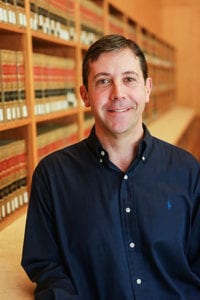
In Oakland, Berkeley Law’s Center for Law, Energy & the Environment is a partner in EcoBlock, a public-private collaboration aimed at sustainable neighborhood redevelopment.
“It’s taking an existing residential block and trying to retrofit it with cutting-edge energy and water efficiency mechanisms in a replicable and hopefully scalable way,” says Professor Dan Farber, CLEE’s faculty director. “We know how to build sustainably from the start. But retrofitting existing structures is a different beast, not just technically but also legally and financially.”
EcoBlock is just one example of the center’s many partnerships that “demonstrate the feasibility of smart policies and sustainable systems, and potentially provide a model for other jurisdictions,” Farber says.
For EcoBlock, CLEE is part of a team led by UC Berkeley’s California Institute of Energy & Environment. It also includes the College of Environmental Design, Goldman School of Public Policy, and other public and private partners.
A $5 million California Energy Commission grant helps fuel the initiative, allowing the team to harness the power of the campus community—including faculty, researchers, and students—to offer pragmatic solutions in a state that demands them.

In another effort, the center worked last year with Berkeley’s Terner Center for Housing Innovation to publish “Right Type, Right Place,” a report that probes California’s housing crisis.
“We know we need to increase housing supply—how do you do that while encouraging sustainable growth?” says CLEE Climate Program Director Ethan Elkind. “How do you do that in a way that encourages building in transit-rich areas to provide livable, workable, transit-friendly options?”
CLEE also joined with the university’s Center for Labor Research and Education to publish two reports that assess the economic impacts of California’s climate policies and programs. While some businesses criticize such policies as too costly, CLEE considered true costs through job losses and gains.
In analyzing the San Joaquin Valley and the Inland Empire, two of California’s lowest-income regions, “we found a net-positive economic impact,” Elkind says. Funded with grants from public, private, and foundation sources, the projects impart valuable lessons for Berkeley Law students.
“What I love about bringing students into interdisciplinary projects is that it helps them see law as a piece of the puzzle to achieve your overarching goals,” Farber notes. “They learn that the law is an important tool, but it’s most effective used in conjunction with others.”
—Andrew Faught